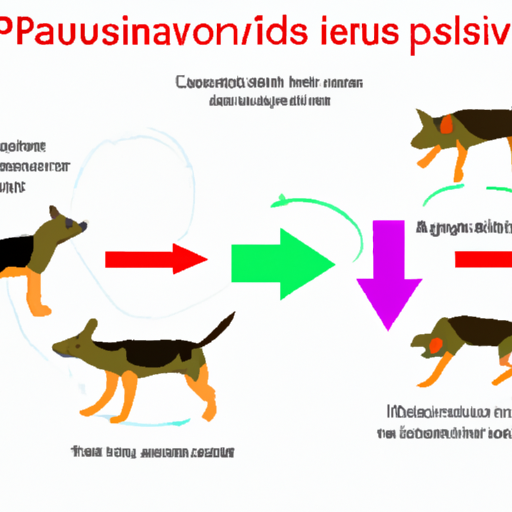As a loving caregiver to your fur-babies, understanding how diseases spread is fundamental to keeping them healthy. Parvovirus, commonly known as Parvo, is an extremely infectious disease that can be fatal to dogs, particularly puppies. Here, we delve into this disease’s transmission, symptoms, and prevention to arm you with vital knowledge.
Understanding the Parvovirus
Parvo is a highly contagious viral disease that affects dogs. It’s notorious for its rapid spread and high fatality rate, especially among puppies.
The virus primarily attacks the dog’s gastrointestinal tract, leading to symptoms like severe diarrhea and vomiting. The disease can also affect the heart muscle in some cases, leading to life-threatening complications.
How Parvo Spreads in Dogs
Parvo is typically spread from dog to dog through direct contact with feces. It can also be spread indirectly through contaminated objects, such as:
- Shoes and clothing
- Food and water dishes
- Toys
- Bedding
The virus is hardy and can survive in the environment for many months, even through harsh winters.
Recognizing the Symptoms of Parvo
Early detection of Parvo can be critical in saving your dog’s life. The most common symptoms include:
- Severe, bloody diarrhea
- Vomiting
- Weight loss
- Loss of appetite
- Lethargy
- Fever
- Dehydration
If you notice any of these symptoms, contact your vet immediately.
Preventing Parvo in Dogs
Prevention is the best form of defense against Parvo. Here are some effective preventative measures:
-
Vaccination: Vaccination is the most effective way to protect your dog from Parvo. Puppies should receive their first vaccination between 6-8 weeks of age, followed by a series of booster shots.
-
Avoiding Exposure: Until your puppy is fully vaccinated, avoid places where there’s a high risk of exposure, such as dog parks or pet shops.
-
Proper Hygiene: Regularly clean and disinfect your dog’s environment and items.
| Preventive Measures | Why it’s Important |
|---|---|
| Vaccination | Most effective protection against Parvo |
| Avoiding Exposure | Helps keep unvaccinated dogs safe |
| Proper Hygiene | Prevents virus from lingering in the environment |
FAQs About Parvo in Dogs
Q: Can humans catch Parvo?
No, humans cannot catch Parvo from dogs. It’s a canine-specific virus.
Q: Can vaccinated dogs get Parvo?
While rare, it’s possible. Vaccines significantly reduce the risk but don’t guarantee 100% protection.
Q: Is Parvo always fatal?
No, with early detection and aggressive treatment, many dogs can recover from Parvo.
Keep your pets safe by staying informed and taking the necessary precautions. Remember, your vigilance can save your furry friend’s life.



